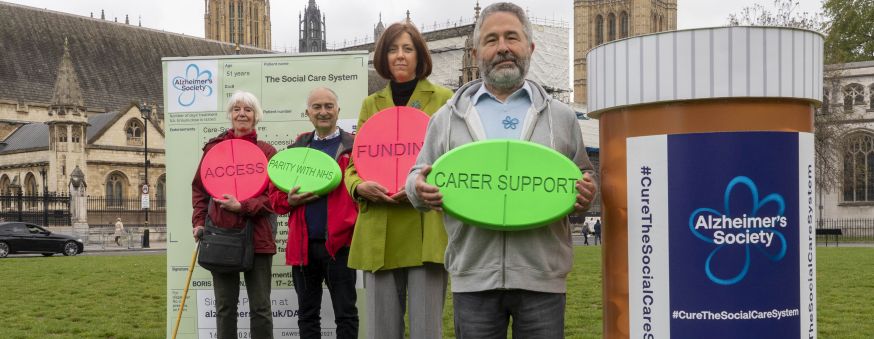Alzheimer’s: advice on what to look out for.
Lisa Skinner, behavioural expert in the field of Alzheimer’s disease and related dementias, shares with ATV Today Lifestyle some common symptoms of early-stage Alzheimer’s, and how you can help a loved one navigate the early stages of their Alzheimer’s diagnosis
“Hearing that your loved one has been diagnosed with Alzheimer’s disease can not only be life-altering but life-shattering as well. From this moment on, the life of your loved one and your family is going to change. At first, you may feel numb, unsure of how to respond or where to turn. It can be helpful to identify some of the emotions that many family members experience after receiving the diagnosis.
“First: Anger that your life is going to take a different course than the one your family had planned. Second: relief that the changes you were seeing in your loved one were cause for concern and that you now know what you are confronted with. Third: Denial because the diagnosis seems impossible to believe and you feel overwhelmed by how your life will change now. Fourth: Depression, sadness and/or hopelessness about the way your life is going to change, and from what will happen to your loved one. Fifth: Fear about the future and how your family will be affected and impacted; 6) Isolation from thinking that your family is the only one going through this; 7) Sense of loss knowing that there is no cure for this disease,” – Lisa Skinner
5 common symptoms of the early stages of Alzheimer’s disease:
Symptom #1: Difficulty coming up with the right word or name.
Difficulty remembering names when introduced to new people. Repeating questions, phrases, or stories in the same conversation. Inventing new words to describe familiar objects. Frequently losing train of thought, or difficulty organizing words logically.
Symptom #2: Reverting to speaking in a native language.
Speaking less often. Cursing or using offensive words. Relying on non-verbal gestures. Difficulty understanding rapid speech, or conversations in a noisy environment. Difficulty speaking. Difficulty with rules of syntax and grammar; although, the physical ability to speak remains intact.
Symptom #3: Forgetting material that one has just read.
Losing or misplacing a valuable object. Increased trouble with planning or organizing. Taking longer to perform tasks, or difficulty completing familiar tasks. Thinking they have finished a task when they have not.
Symptom #4: Challenges in following a plan or familiar recipe.
Trouble keeping track of monthly bills. Difficulty concentrating. Difficulty following directions. Difficulty understanding large amounts of information. Difficulty writing. Difficulty making decisions, and often defers to others’ choices. Difficulty with time orientation.
Symptom #5: Memory loss
This becomes a problem when it affects the ability to perform everyday tasks. One of the most common early signs of dementia is forgetting recently learned information. While it’s perfectly normal to forget appointments, names, or telephone numbers, those with dementia will forget such things more often and not remember them later. Short-term memory loss begins to fade in and out.
“A person may seem to function quite normally in the earliest stages of the disease. He or she may begin to forget familiar words or the whereabouts of such items as their reading glasses, house keys, etc. He or she may still seem capable of driving, working, and participating in usual social activities with no significantly noticeable changes. Alternatively, friends and family may begin to notice some subtle difficulties. Over time, people with dementia often find it difficult to express themselves and to understand others.
“Memory loss is evident in normal aging but differs from memory loss caused by Alzheimer’s disease and other related dementias. It is normal for the elderly to experience some rate of decline in cognitive thinking and reasoning abilities. That doesn’t necessarily mean they have a brain disease. However, the elderly can still learn and retain new information; whereas, with brain disease, they cannot. An example of normal forgetfulness might be misplacing car keys. Abnormal forgetfulness may be not knowing what the function of your car keys are. Recognizing the signs of normal forgetfulness vs. the early stages of dementia will enable family members, friends, and caregivers to look for continued signs of cognitive decline and know that what they are seeing are the early stages of a more serious condition.
“Because the early signs of dementia are subtle, and most doctors don’t make a diagnosis until they are already in their mid-stage of the disease, understanding the continued signs of decline will help prepare them for the next stages.” – Lisa Skinner, behavioural expert in the field of Alzheimer’s disease and related dementias


















